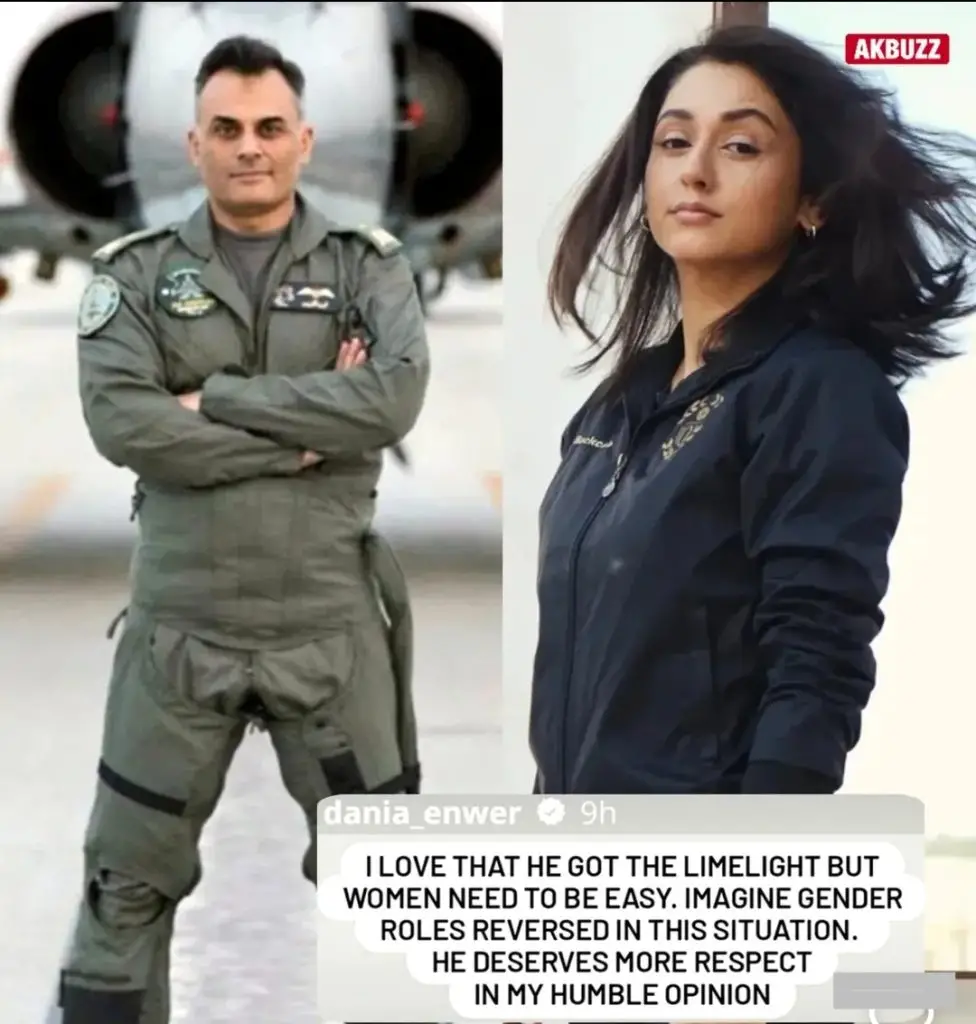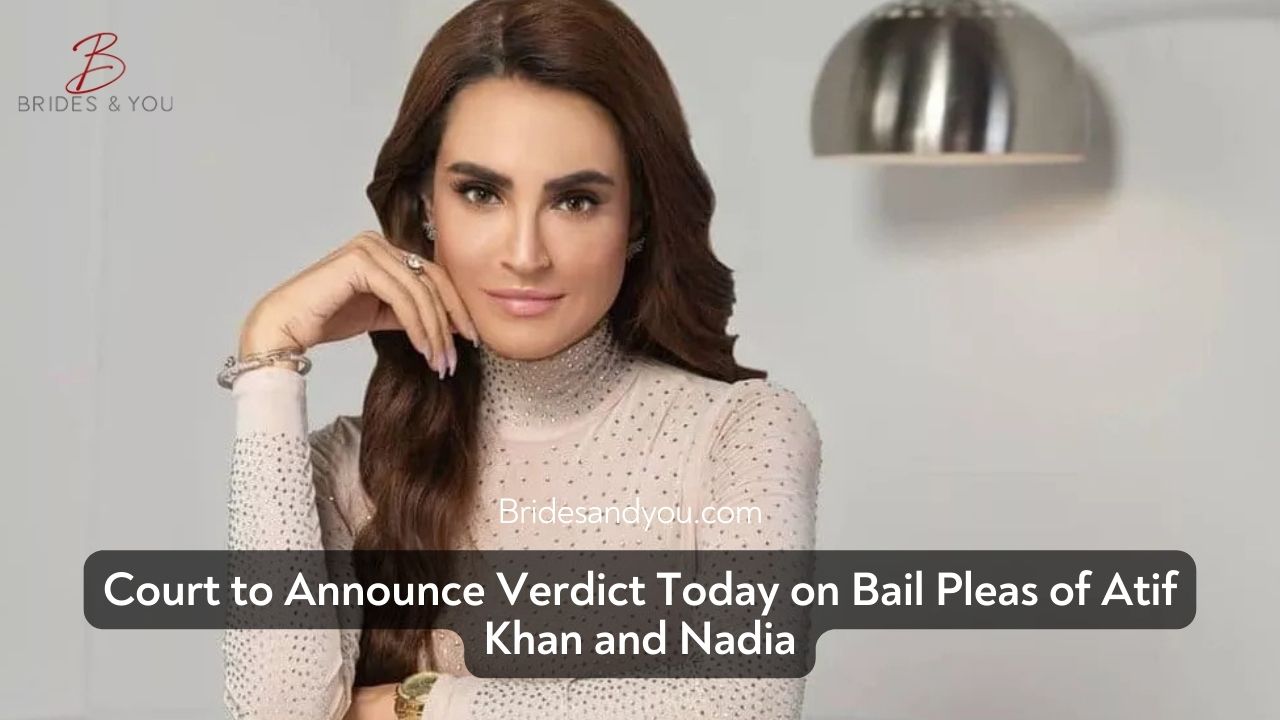Now Reading: Flirty Fans of AVM Aurangzeb: Pakistani Celebs Speak Out Against Social Media Frenzy
-
01
Flirty Fans of AVM Aurangzeb: Pakistani Celebs Speak Out Against Social Media Frenzy
Flirty Fans of AVM Aurangzeb: Pakistani Celebs Speak Out Against Social Media Frenzy
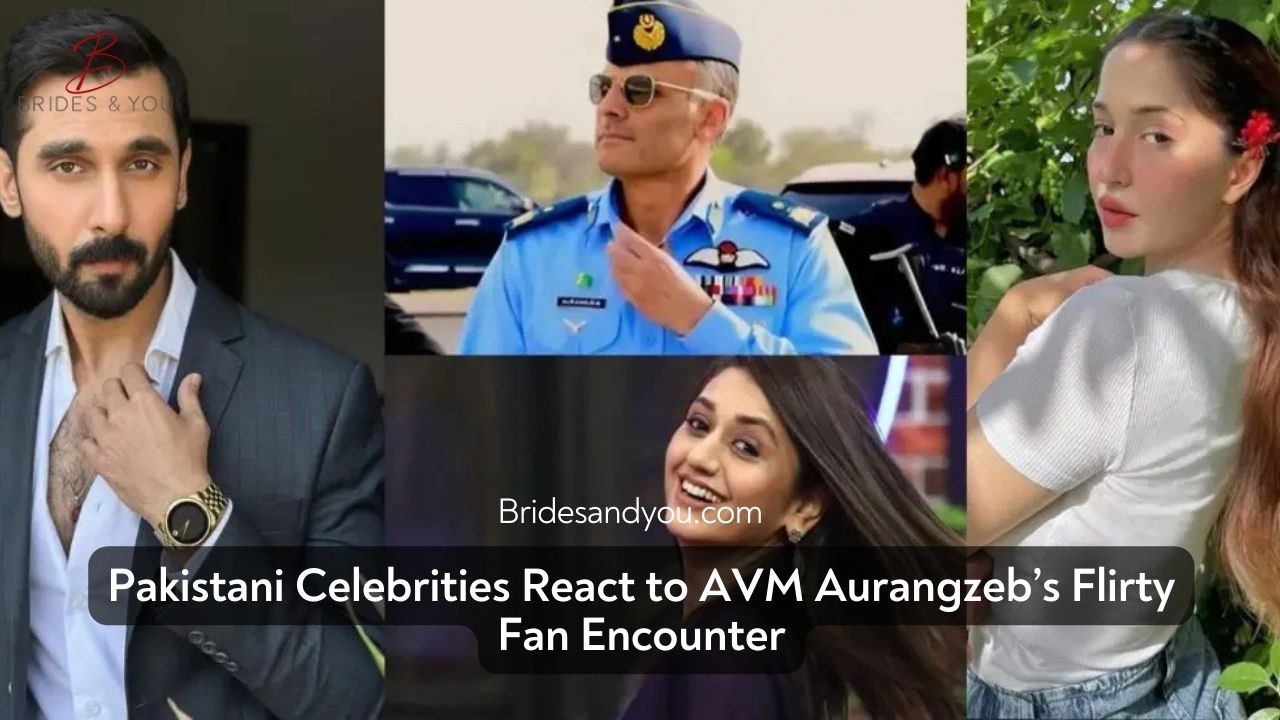
The internet can turn anyone into a sensation overnight—and that’s exactly what happened to Air Vice Marshal (AVM) Aurangzeb Ahmed, a distinguished officer in the Pakistan Air Force. After representing the PAF in ISPR’s recent press conferences, Aurangzeb’s calm authority, articulate presence, and commanding looks instantly caught public attention. However, the wave of admiration soon escalated into a flood of flirtatious and, at times, inappropriate comments across social media platforms.
The frenzy peaked after Pakistan Air Force’s significant feat of downing six Indian jets. As AVM Aurangzeb became the face of national pride, fans—particularly women—flooded the internet with memes, romantic fantasies, and cringeworthy remarks. This behavior quickly raised eyebrows, not just among netizens but also among celebrities who felt the need to address this growing trend.
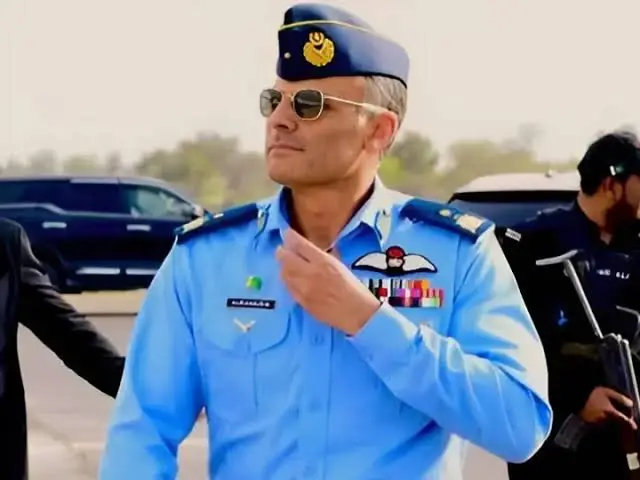
Who is AVM Aurangzeb Ahmed?
AVM Aurangzeb Ahmed, 53, is not just an experienced officer; he is a married man and a father to highly accomplished children. Known for his intellect, polished demeanor, and disciplined stance, he became the center of media attention from the moment he stood at the podium. His composed style during the press briefings won hearts—but what followed wasn’t entirely respectful.
Despite the brief spotlight lasting only a few days, the ripple effect of his newfound popularity lingered far longer. And unfortunately, not all the attention honored his service or professionalism.
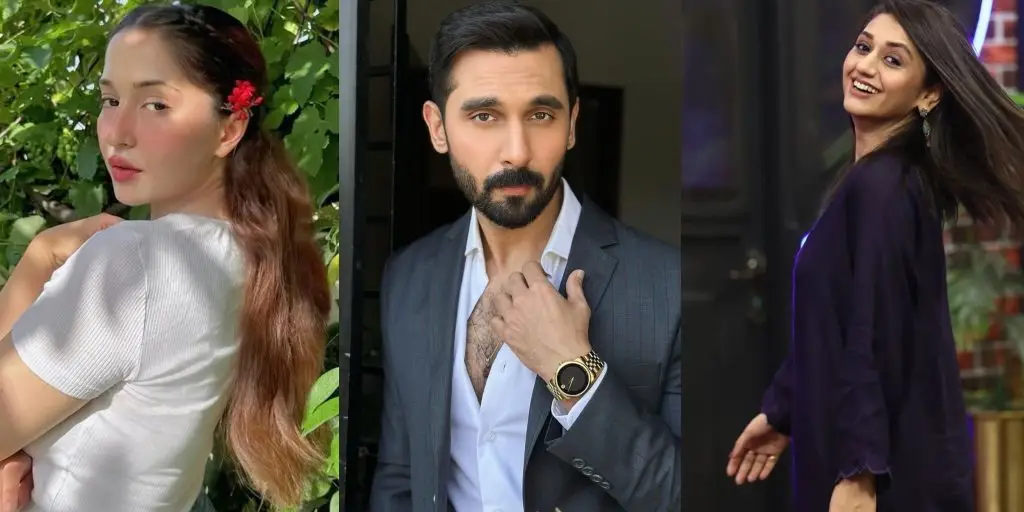
Celebrities Defend Dignity and Decency
Several Pakistani celebrities took to social media to express their dismay at the online romanticization of a senior military officer. While many acknowledged the public’s right to admire national figures, they drew the line at inappropriate and flirty behavior, especially directed at a man with a family.
Abdullah Sultan, a prominent media figure, stated that while admiring AVM Aurangzeb’s personality is fair, crossing the line with suggestive memes and inappropriate posts is not. He urged fans to recognize the difference between respect and objectification.
Fiza Khawar, in a direct response to the trend, shared the original ISPR content and wrote, “Pakistani women should calm down because making sexual and unethical jokes on our respected officers is beyond comprehension.” Her message resonated with many who felt the same discomfort seeing a national hero treated as a romantic meme template.
Mansoor Ali Khan, a seasoned journalist, went a step further and stated, “He is a 53-year-old married man. I genuinely feel bad for his wife having to witness all this.” His message struck a chord, especially with those who believe that military personnel deserve praise, not unwelcome attention.
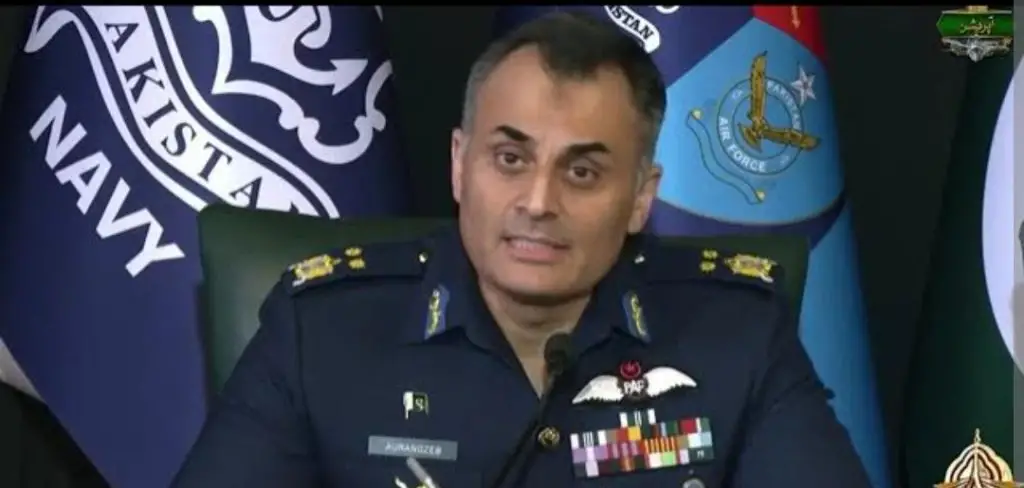
The Bigger Picture: Boundaries in Public Admiration
This situation has brought forth a crucial conversation around digital boundaries, respect for public figures, and the social responsibility that comes with online freedom. While it’s natural to admire charismatic individuals, it’s important to consider how our words and actions affect not only the individuals in question but also their families.
Pakistan’s military officers, like AVM Aurangzeb, put their lives on the line to protect the nation. Turning them into subjects of flirtation undermines their sacrifice and shifts focus from their professional achievements to personal objectification.
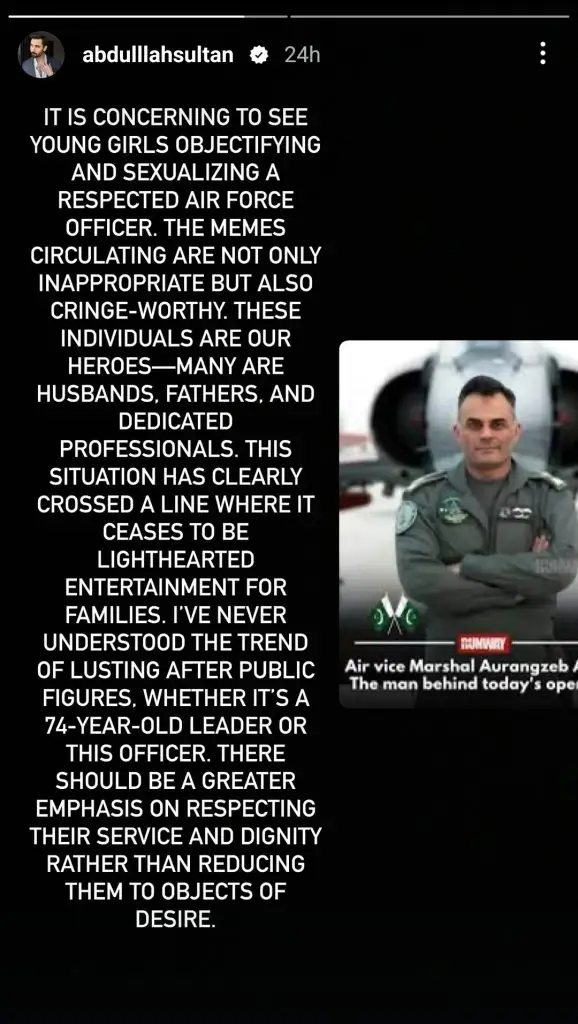
Public Reaction and Moral Responsibility
Interestingly, a growing number of Pakistani women also came forward in support of the celebrities’ stance. Many agreed that while admiration is welcome, romanticizing a uniformed officer in such a manner reflects poorly on the societal values we claim to uphold.
Memes and jokes may seem harmless, but they often walk a fine line between humor and disrespect. The call from celebrities serves as a reminder: our heroes deserve admiration that uplifts, not attention that diminishes their dignity.
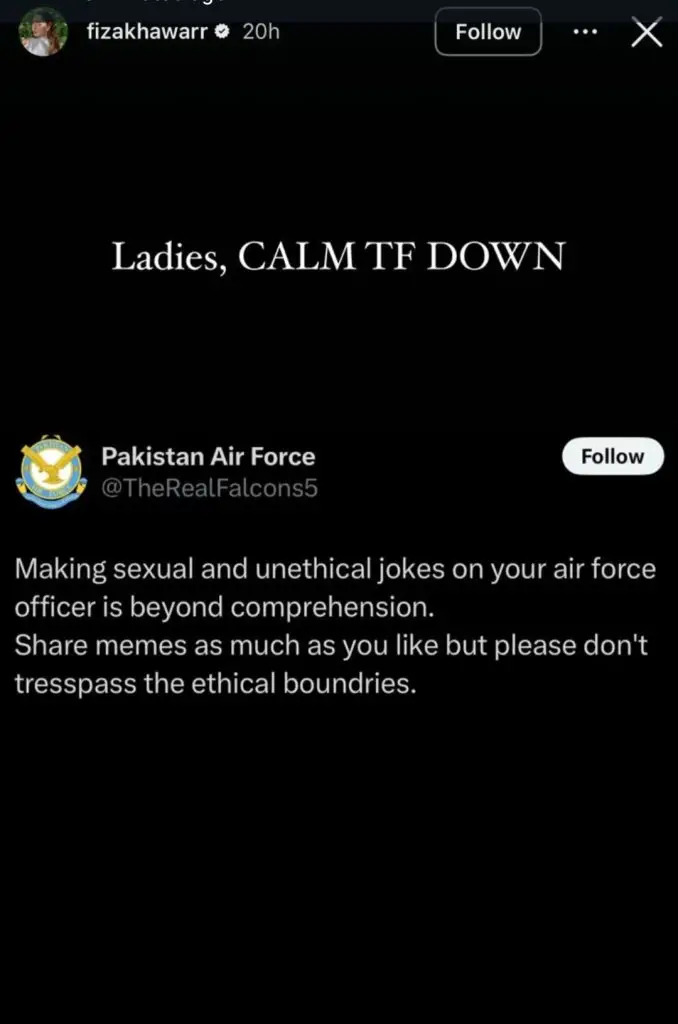
Final Thoughts
The story of AVM Aurangzeb’s sudden fame is a powerful reminder that admiration must always be grounded in respect. The flirty fans of AVM Aurangzeb may have meant no harm, but their approach has sparked an important debate about online behavior and the kind of admiration we choose to express.
Celebrities using their platforms to highlight these issues should be appreciated for steering the conversation in the right direction. As netizens, it’s our collective responsibility to honor national heroes with grace, not memes.
